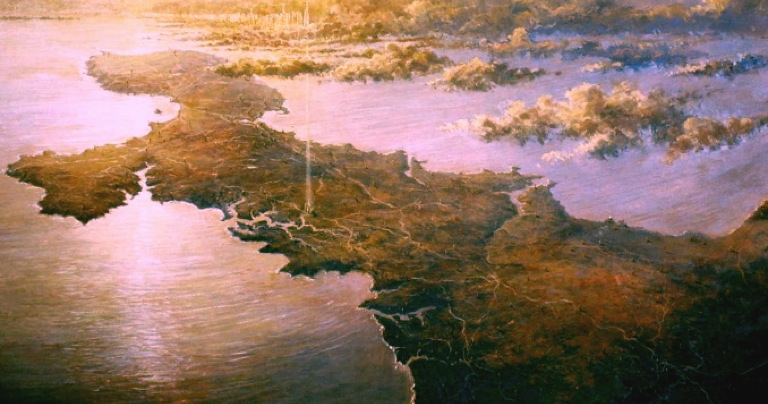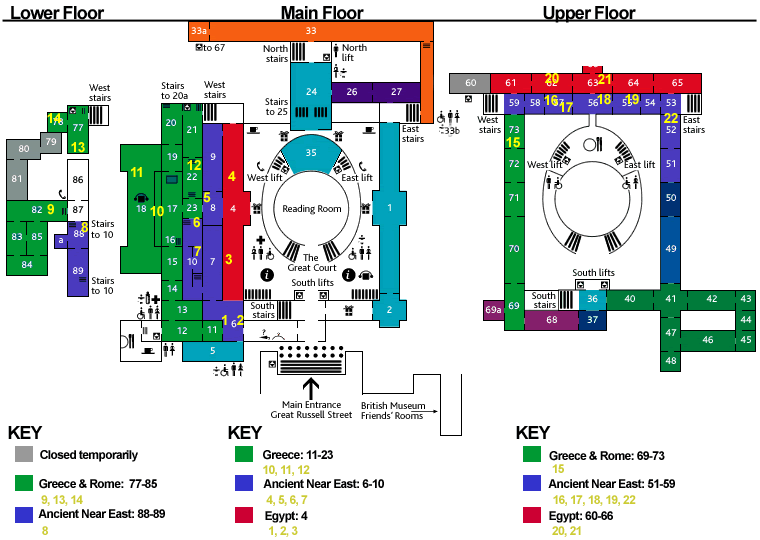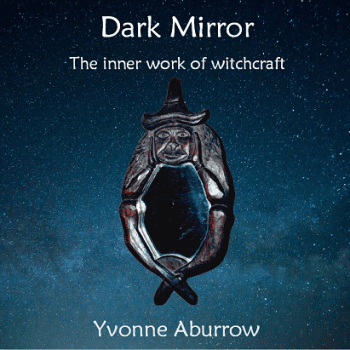Hello, beautiful creatures.
Previously on Outside the Charmed Circle, I told a cautionary tale from my misspent youth about communing with the land, only to discover that not only did the land have something to say… and that it was deeply unhappy. Good times, right? The underlying point, however, wasn’t intended to be “some of us do stupid things when we’re sixteen,” but rather, “here are some of the sorts of things that can happen when you listen to the land.”
Today, I want to share another anecdote in a similar, albeit much less dramatic vein, and talk a little about listening to the land and the idea of “belonging.” In approaching these ideas, I’m going to make some statements about my own experiences: my “personal gnosis,” if you like, though I have issues with that framing1. In doing so, I want to make clear between us that I’m speaking only for my experiences, which apply to me, but won’t necessarily apply to you.
All clear? Good. So, to start with, let’s set the Wayback Machine… or, perhaps more appropriately, hop in the TARDIS.
Belonging in Albion and Éire
In September 2002, I fulfilled a lifelong dream of visiting the British Isles. Specifically, I spent two and half weeks in England, Scotland, and Ireland. In that time, I knocked around London and Norfolk, visited Glastonbury and Avebury, took a train to Edinburgh and Inverness, flew to Dublin for a weekend, and generally ran around desperately packing as many sights and experiences into seventeen days as I could. I may have been more than slightly manic about the whole thing.
It was my first time outside the United States, and from the moment I stepped off the plane, I felt something strange, something utterly magical. I spent several days over the next two and a half weeks struggling to find words for it. Much of that was in the form of incoherent babbling to my hosts, who seemed both amused and faintly bemused. It was an almost-physical sensation, something I could feel in my body, even under the most ordinary circumstances: lying in a borrowed bed, having tea in a garden, eating a so-help-me Burger King meal in Piccadilly Circus. I felt it while walking Neolithic sites in Avebury and Drogheda, sure, but also while watching Morris dancers outside a Norfolk pub or walking the cobblestone streets of Edinburgh, drinking in a glitzy Eurotrash bar in Inverness or standing, awestruck, in the Long Room at Trinity College in Dublin.
Finally, I was able to boil it down to something comprehensible: for literally the first time in my life, I felt seen and known by the land, right down to my bones. I felt like I belonged there, physically, as much a part of the landscape as the soil itself.

Any of those explanations sound reasonable, but none of them touch that nigh-physical sensation of belonging I mentioned. Standing on the “green and pleasant land” of William Blake’s poem felt… right. The trees, rocks, and dirt felt right. The skies looked right, even when they opened up and dumped a bucket of gusty London rain on me, destroying two umbrellas in five minutes’ time. It was unnerving, and numinous, and utterly joyful.
Walk (Un)like an Egyptian
It wasn’t entirely a numinous and joyful trip, though. One of the more curious moments of my British Isles sojourn put that experience of belonging into a broader context, which was both uniquely educational and distinctly unpleasant.
While in London, I visited the British Museum. If you ever have the opportunity to do so, take it. It’s an amazing experience.

I don’t claim any great powers of clairsentience or psychic sensitivity. All I can tell you is that there were a lot of artefacts in that big, drafty room. A lot of those artefacts had spirits associated with them. And every single one of those spirits was pissed about being there.
It was a dissonant, nerve-wracking experience to be strolling through the museum, feeling that sense of belonging—utterly at home and at peace on that land—and walk into a room full of spirits who had been stolen from their homes, spirits who were alien to that land and most definitely not at peace. These were spirits rooted in Kemet, in the soil and history of Egypt, and they’d been uprooted and abducted to this cold, drafty country, put on display for tourists with cameras and audio-tour headphones. They didn’t belong there, and they didn’t want to be there.
I went and looked at the Sutton Hoo treasures instead. Much more soothing. Nothing in that exhibit snarled in anger, accused me of theft, or brooded over wrongs both ancient and modern.
That moment in the Egyptian exhibit stayed with me. It drove home some uncomfortable points about English history and cultural imperialism… which, in turn, underscored some uncomfortable things about American culture—which, after all, derives in great part from English history and culture—and our own ghastly history of cultural imperialism. It gave me a lot of food for thought about belonging, and what it meant for cultures and spirits, human and otherwise, to exist in relation to place.
More on that anon. Until next time, dear ones, be safe. ♥
- “What issues?” you ask. Okay, this’ll probably wind up as a longer piece, but the short version is that in my understanding, gnosis—experiential spiritual knowledge—is always a personal experience. After all, experience is subjective. As such, the reflexive framing of “personal gnosis,” especially in the context of the popular Pagan phrase “unsubstantiated personal gnosis,” seems more like a way to undermine the validity of someone’s spiritual experience than a legitimate form of taxonomy.













